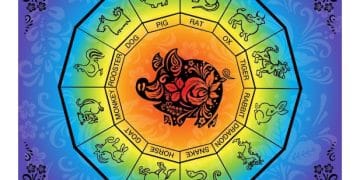Increase Self-Awareness: Self-Inquiry Meditation Guide

Increase self-awareness through self-inquiry meditation, a powerful technique for exploring your inner thoughts and emotions, leading to greater understanding and personal growth.
In a world demanding constant external engagement, learning how to increase self-awareness through meditation can bring profound inner peace and clarity. Self-inquiry meditation, in particular, offers a powerful pathway to understanding your thoughts, emotions, and core beliefs.
Understanding the Essence of Self-Awareness
Self-awareness is recognizing your own personality, including your strengths, weaknesses, thoughts, beliefs, and emotions. It allows for a clearer understanding of your behavior and how it impacts others, pivotal for personal growth.
Why is self-awareness so crucial? It serves as the foundation for making informed decisions, building strong relationships, and leading a more authentic life. When you know yourself well, you’re better equipped to navigate complex situations and respond thoughtfully rather than react impulsively.
The Benefits of Heightened Self-Awareness
Cultivating self-awareness offers a myriad of benefits that ripple through various aspects of your life. It’s like shining a light on the inner workings of your mind, allowing you to understand patterns, triggers, and motivations previously hidden in the shadows.
- Enhanced Decision-Making: A deeper understanding of your values helps you align choices with your true self.
- Improved Relationships: Recognizing your emotional responses fosters empathy and healthier communication.
- Increased Emotional Intelligence: Understanding your emotions improves your ability to manage them effectively, reducing stress and improving overall well-being.
- Greater Authenticity: Living in alignment with your values and beliefs leads to a more fulfilling and genuine existence.

In essence, self-awareness is the cornerstone of personal development. It empowers you to take control of your life, make mindful choices, and cultivate meaningful connections. The journey to greater self-awareness begins with a commitment to understanding yourself on a deeper level.
The Role of Meditation in Cultivating Self-Awareness
Meditation provides a structured approach to becoming more aware of your inner landscape. It involves training your mind to focus and observe your thoughts and feelings without judgment.
Meditation isn’t about emptying your mind; it’s about creating space to observe your thoughts as they arise. This practice allows you to detach from the incessant chatter and gain a clearer perspective on your internal state.
How Meditation Rewires Your Brain for Self-Awareness
Regular meditation practice can lead to changes in brain structure and function, promoting self-awareness and emotional regulation. Studies have shown that meditation can increase gray matter in regions associated with attention and self-awareness, enhancing your ability to observe your thoughts and emotions.
- Increased Gray Matter: Meditation can increase gray matter in the brain regions associated with attention and self-awareness.
- Reduced Activity in the Default Mode Network: Meditation helps quiet the “monkey mind,” reducing self-referential thoughts and allowing for presence.
- Enhanced Connectivity: Improves communication between brain regions involved in emotional regulation and self-control.
It fosters your ability to observe thoughts and feelings without getting carried away by them. It provides a safe space to explore your inner world and understand the patterns that drive your actions and reactions. Through consistent practice, meditation becomes a powerful tool for cultivating lasting self-awareness.
Exploring Self-Inquiry Meditation: A Powerful Tool
Self-inquiry meditation involves asking yourself probing questions to uncover deeper truths about your identity, beliefs, and motivations. This active exploration of your inner world can lead to profound insights and revelations.
Unlike passive forms of meditation, self-inquiry requires active engagement with your thoughts and feelings. It encourages you to question your assumptions, challenge your limiting beliefs, and discover your authentic self.
Key Questions for Self-Inquiry Meditation
Some questions commonly use in self-inquiry meditation that can help you unlock new levels of self-awareness.
- Who am I beyond my roles and identities?
- What do I truly value in life?
- What fears or beliefs are holding me back?
By consistently engaging in this process, you can dismantle the layers of conditioning and uncover your true essence. It is a continuous journey of self-discovery. And the more consistently and deeply you engage in the practice, the more easily your awareness expands.
Step-by-Step Guide to Practicing Self-Inquiry Meditation
To get started with self-inquiry meditation, find a quiet space where you won’t be disturbed. Sit comfortably with your spine straight and close your eyes. Begin by focusing on your breath to calm your mind.
Once your mind is relatively still, introduce a question related to your identity or values. For example, you might ask yourself, “Who am I?” Allow the answers to arise without judgment. Simply observe the thoughts and feelings that emerge, without getting attached to them.
Tips for a Successful Self-Inquiry Practice
Here are some tips to help you enhance your self-inquiry meditation practice:
- Be patient: Insights may not come immediately
- Be open and curious: Approach the process with a sense of exploration.
- Practice regularly: Consistency is key to deepening your self-awareness.

As you continue practicing, you may find that the answers to your questions evolve and deepen. This is a natural part of the process. Trust your intuition and allow your inner wisdom to guide you.
Overcoming Challenges in Self-Inquiry Meditation
Self-inquiry meditation can be challenging, especially when confronting difficult emotions or limiting beliefs. It’s important to approach this practice with self-compassion and patience.
One common challenge is the tendency to get caught up in thoughts and stories. When you notice your mind wandering, gently redirect your attention back to the question at hand.
Tools for Navigating Difficult Emotions
If difficult emotions arise during self-inquiry meditation, here are some techniques can help you navigate these moments.
- Acknowledge and accept what you are feeling.
- Practice self-compassion by reminding yourself that everyone experiences challenges.
- Journal about your experiences to gain clarity and perspective.
Remember that self-inquiry is not about eliminating challenging emotions. But allow yourself being fully present with your feelings and to learn as much as possible about whatever your emotions are trying to tell you.
Integrating Self-Awareness into Daily Life
The benefits of self-inquiry meditation extend beyond the meditation cushion. By integrating self-awareness into your daily life, you can make more mindful choices and cultivate healthier relationships.
One way to integrate self-awareness is to pause throughout the day and check in with yourself. Notice your thoughts, feelings, and physical sensations. Ask yourself what you need in that moment and respond accordingly.
Practical Exercises for Cultivating Daily Self-Awareness
Integrating self-awareness doesn’t need to be complicated. Here are some simple ideas and examples.
- Pay Attention to Your Body Language: Notice how your posture and gestures reflect your inner state.
- Reflect on Your Experiences: Take a few moments to journal each day about your thoughts and feelings and what that means to you.
- Practice Mindful Communication: Listen actively to others and be aware of your responses.
By weaving self-awareness into the fabric of your daily life, you can transform your relationships, enhance your decision-making, and live a more authentic and fulfilling life. It’s a continuous journey of self-discovery that unfolds with each mindful moment.
| Key Point | Brief Description |
|---|---|
| 🧠 Understanding Self-Awareness | Recognizing strengths, weaknesses, thoughts, and emotions for personal growth. |
| 🧘♀️ Meditation’s Role | Meditation provides a structured approach to becoming more aware. |
| ❓ Self-Inquiry Questions | Asking probing questions to uncover deeper truths about identity and beliefs. |
| 📅 Daily Integration | Integrating self-awareness into daily life for mindful choices and healthier relationships. |
Frequently Asked Questions
▼
Self-inquiry meditation is a technique that involves asking yourself probing questions to uncover deeper truths about your identity, beliefs, and motivations. It is a proactive form of meditation.
▼
The frequency of your practice depends on your personal preferences and goals. However, consistency is key. Aim for at least a few times a week to start, then gradually increase.
▼
It’s normal for the mind to wander during meditation. When you notice your thoughts drifting, gently redirect your attention back to your breath or the self-inquiry question at hand.
▼
Yes, cultivating self-awareness helps you understand and manage your emotional responses, reducing stress and anxiety. It also helps you identify your triggers.
▼
Yes, self-inquiry meditation can be practiced, even without prior meditation experience. However, beginners must approach this exercise with patience and self-compassion.
Conclusion
Ultimately, the journey to increased self-awareness through self-inquiry meditation is a deeply personal and transformative experience. By committing to regular practice and integrating self-awareness into daily life, you can unlock new levels of understanding, compassion, and authenticity. Start today, and discover the profound benefits that await you on the path to greater self-knowledge.





